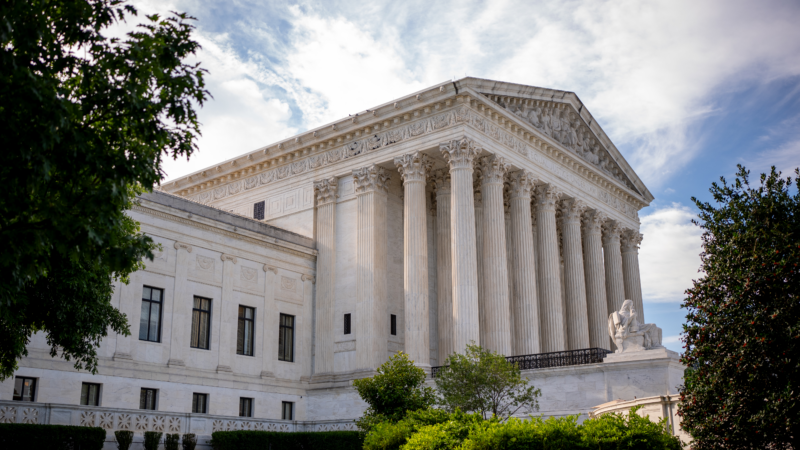Supreme Court upholds Biden-era rule regulating ghost guns
The U.S. Supreme Court, in a 7-2 decision, upheld a Biden-era rule requiring serial numbers and background checks for ghost guns.
Justices Samuel Alito and Clarence Thomas dissented.
The court said that ghost guns, which are virtually untraceable weapons that require assembly, are considered “firearms” and subject to ATF regulation.
They’re called ghost guns because unlike guns bought from a licensed dealer, these build-it-yourself gun kits have no serial numbers stamped on the assembled firearm, so the guns can’t be traced if found at a crime scene. And there are no background checks done on people who purchase the kits. The kits can be bought online without any background check, and without presenting identification. In fact, according to regulators, the kits can be bought anonymously with cryptocurrency, using a pre-paid debit card.
In 2022, as gun kits became more and more of a problem for law enforcement, the Bureau of Alcohol, Tobacco, Firearms and Explosives issued a rule classifying the kits as firearms under the 1968 Gun Control Act. The statute defines a firearm as “any weapon…which will or is designed to or may readily be converted” into a functional firearm.
The government contended that these ghost guns kits, which can be readily converted into a firearm “in a matter 30 minutes or less,” count as a firearm under the 1968 law. But kit sellers challenged the regulation, countering that “a kit of parts is not a weapon.”
The conservative 5th Circuit Court of Appeals based in Louisiana agreed with them and struck down the ATF ghost gun rule. But the Supreme Court on Wednesday ruled that ghost guns could indeed be regulated by the law.
This is a developing story and will be updated
Rideshare union rights, social media limits and other state laws taking effect Jan. 1
Every new year, public media reporters across the country bring us some of the new state laws taking effect where they are. Here are six in 2026.
Guides to help you tackle your New Year’s resolutions
From building your strength to tackling credit card debt, NPR's Life Kit has a newsletter journey to help you tackle your New Year's resolution.
Guides to help you tackle your New Year’s resolutions
From building your strength to tackling credit card debt, NPR's Life Kit has a newsletter journey to help you tackle your New Year's resolution.
Dozens presumed dead in fire at Swiss Alps bar during New Year’s celebration
Dozens of people are presumed dead and about 100 injured, most of them seriously, following a fire at a Swiss Alps bar during a New Year's celebration, police said Thursday.
Warren Buffett officially retires as Berkshire Hathway’s CEO
The legendary 95-year-old investor spent decades building his company into one of the world's largest and most powerful. Now Greg Abel is taking it over.
Crypto soared in 2025 — and then crashed. Now what?
For most of 2025, cryptocurrencies such as bitcoin surged as President Trump vowed to make the U.S. a crypto leader. But now, a severe sell-off has shaken the sector.






